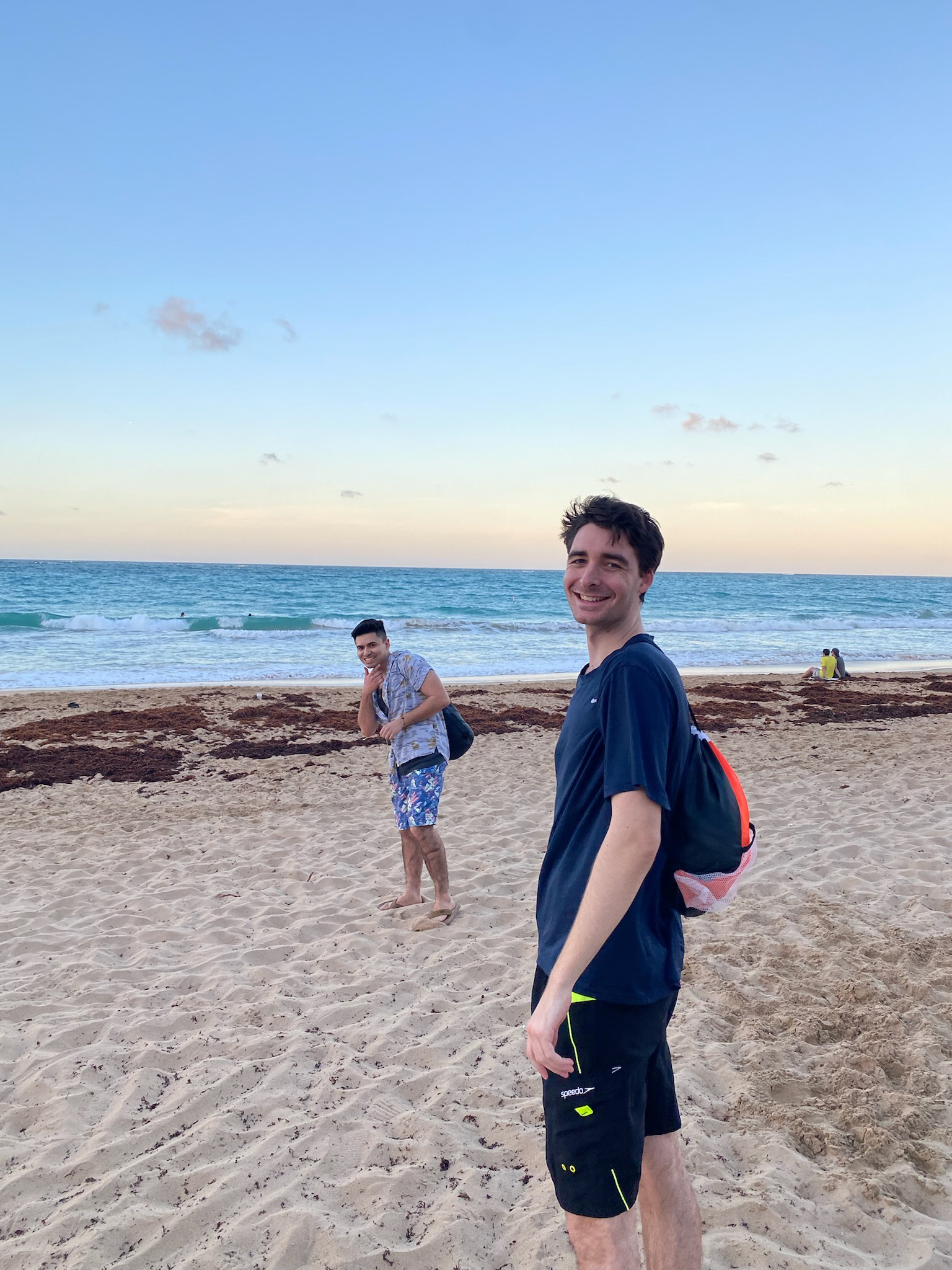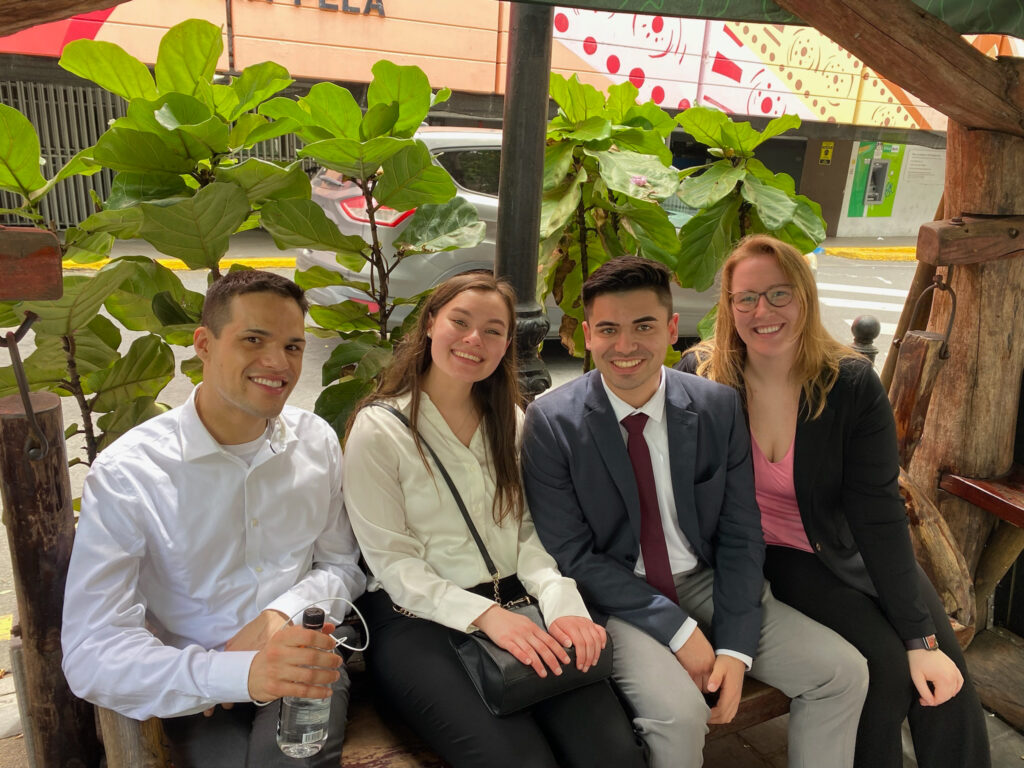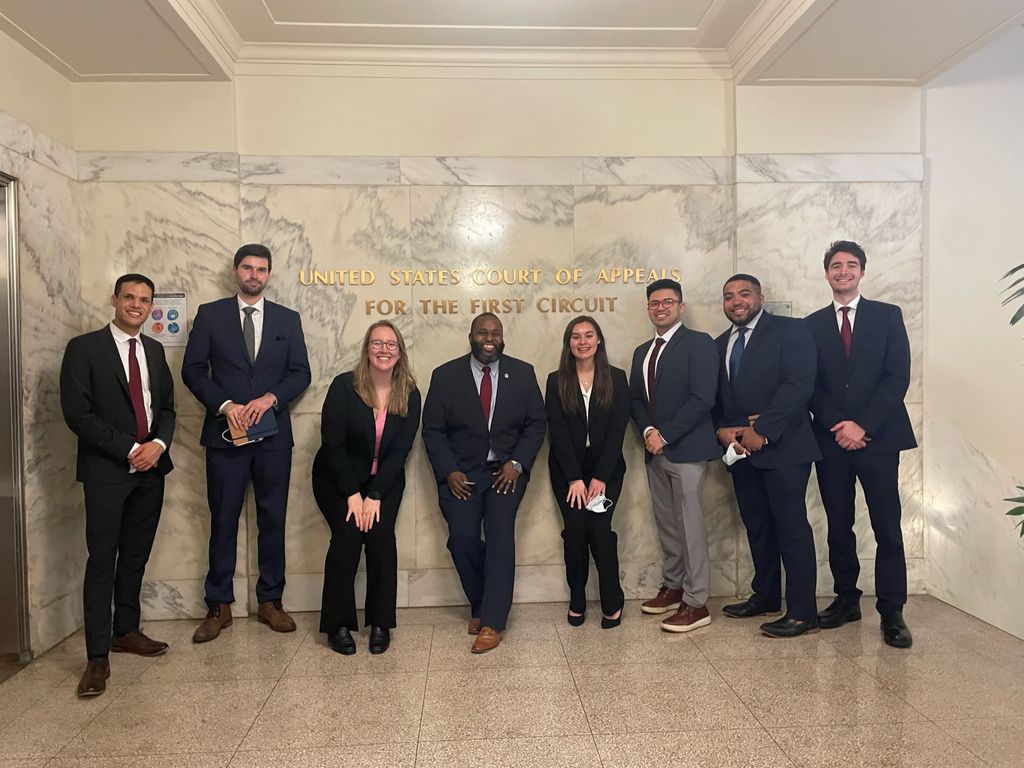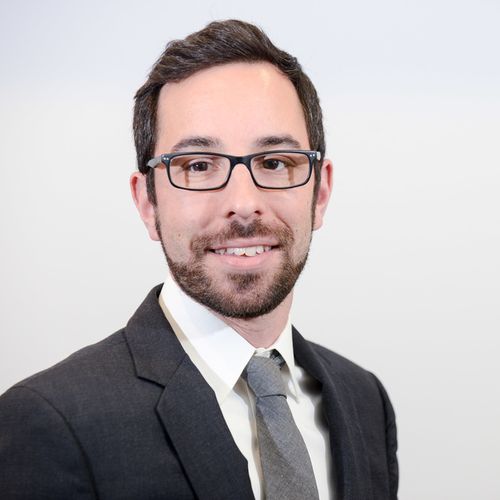A “New Wave” Rises in Puerto Rico
During a spring break pro bono trip, seven BU Law students helped spread the game of lacrosse and participated in a panel for International Women’s Day.

Matthew Ierardi (right) and Alejandro Perez (left) on a beach in Puerto Rico. | Photos courtesy of Sophie Lovering
A “New Wave” Rises in Puerto Rico
During a spring break pro bono trip, seven BU Law students helped spread the game of lacrosse and participated in a panel for International Women’s Day.
A spring break trip to Puerto Rico is usually a chance for fun in the sun and relaxation from the rigors of law school. But for seven Boston University School of Law students who visited the island in March, it was an opportunity to give back with a week of pro bono work that will have a lasting impact.
In relaunching the annual pro bono trip—regularly organized by the law school before the pandemic—this year’s group helped Puerto Rican high schools establish lacrosse programs by sorting through local and federal regulations and building a curriculum to aid teachers interested in coaching to become certified. For Joel Paulson (’25), who has played lacrosse for Puerto Rico’s national team, it was a special opportunity to connect his passion for the sport, his heritage, and his legal education.
“It really cemented a lot of things for me in terms of the kind of lawyer I want to be, and it also allowed me a window into how law can be a useful tool,” Paulson says. “This is one of those times where being a law student or having a law degree, you can actively make a difference in a way that’s wholly positive across the board.”
The students began the week by observing oral arguments in five cases at the US Court of Appeals for the First Circuit, which includes both Puerto Rico and Massachusetts. After watching arguments in a criminal case that referenced cases they had recently discussed in class, they met with the federal public defender and assistant US attorney arguing the appeal, as well as Justice Gustavo Gelpí.
For much of their time in Puerto Rico, the students researched the legal requirements to organize a high school lacrosse team, which are more onerous than in the mainland United States, Paulson says. Working with Miguel Lozada, an attorney and president of Puerto Rico Lacrosse, Paulson and his classmates designed a workshop for teachers and a clinic to teach students and future coaches how to play the game.

Grant Owen, Emma Bowler, Alejandro Perez, and Sophie Lovering in Puerto Rico on a pro bono spring break trip in 2023.

Grant Owen, Michael St. Germain, Sophie Lovering, Eron Hackshaw, Emma Bowler, Alejandro Perez, Joel Paulson, and Matthew Ierardi at the US Court of Appeals for the First Circuit in Puerto Rico.
Left: Grant Owen, Emma Bowler, Alejandro Perez, and Sophie Lovering in Puerto Rico on a pro bono spring break trip in 2023.
Right: Grant Owen, Michael St. Germain, Sophie Lovering, Eron Hackshaw, Emma Bowler, Alejandro Perez, Joel Paulson, and Matthew Ierardi at the US Court of Appeals for the First Circuit in Puerto Rico.
For Emma Bowler (’25), who played lacrosse for 10 years and whose mother is Puerto Rican, it was especially meaningful to see how quickly everyone took to the game.
“We could tell them all the legal steps—and that stuff is so important in terms of making sure things happen—but the only way they were going to go through those steps is if we showed them the game of lacrosse and made them love it as much as we do,” she says.
During the trip, the BU students also worked with law students from a University of Puerto Rico pro bono clinic to host a panel discussion about domestic violence, featuring a pair of Puerto Rican professors and a Chilean activist for International Women’s Day, which Bowler co-moderated.
In the short time since the lacrosse workshop, six Puerto Rican high schools have established teams, according to Eron Hackshaw, the law school’s director for public service & pro bono. In just one week of work, seven BU students “created a new wave” of interest in lacrosse on the island.
“The best part about it,” Hackshaw says, “is that it’s continuing to grow.”
